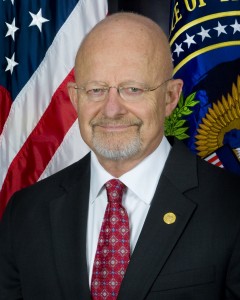
James R. Clapper
Marisa Taylor of McClatchy Newspapers reports that Director of National Intelligence James Clapper is drafting a new national policy on polygraph screening. Excerpt:
WASHINGTON — The Obama administration is drawing up a new national polygraph policy in the wake of allegations that federal agencies are pushing legal and ethical limits during screenings of job applicants and employees.
The decision by National Intelligence Director James Clapper to draft a new policy comes after his office conducted a review of federal polygraph programs and after McClatchy detailed allegations of polygraph abuses. Clapper’s review found “inconsistencies” across the government that led him to order a new policy, but it also found that “all programs were operating appropriately,” Clapper’s public affairs office said in a statement to McClatchy.
But a congressman who’d asked Clapper to look into alleged polygraph abuses said the director was being “dismissive” of a more serious problem with the way the federal government conducts its screenings. In its statement, Clapper’s public affairs office said the inconsistencies “related to administrative practices, rather than the substance of the polygraphs.” The review was completed between July and August.
“This is a non-response,” said Rep. Rush Holt, a New Jersey Democrat. “I’m really concerned that throughout the intelligence community there has been an unwillingness to ask critical questions about polygraph.”
Independent national-security experts agreed that Clapper appeared to be downplaying legitimate concerns about the federal government’s use of polygraph. Several of them who read a draft of the policy obtained by McClatchy said it would do little to crack down on overly aggressive polygraph interrogations. In fact, it appears to allow agencies to continue current practices with few new requirements and may even grant agencies more latitude in some instances.
“It does not address polygraph abuses at all,” said Steven Aftergood, who runs the Federation of American Scientists’ Project on Government Secrecy. “Given that polygraph testing is not going away, a new policy should grapple directly with the problems it poses.”
McClatchy has made a draft of the proposed new polygraph policy available here. The policy takes no account whatsoever of the National Research Council’s determination that “[polygraph testing’s] accuracy in distinguishing actual or potential security violators from innocent test takers is insufficient to justify reliance on its use in employee security screening in federal agencies.” Instead, America’s top intelligence officer seems to think that so long as polygraph chartgazers at various federal agencies perform their rituals in a uniform manner, everything will be hunky dory.
Perhaps the most significant specific policy measure in the draft is section E.3: “A favorably completed and adjudicated polygraph examination conducted by an agency, in accordance with this directive, shall be reciprocally accepted by all other agencies.” This raises the question, if polygraphy is so reliable, then why should not an unfavorably completed and adjudicated polygraph examination also be reciprocally accepted by all other agencies?
McClatchy has also made available the non-responsive reply that Director of National Intelligence Clapper sent to Representative Rush Holt of New Jersey. Holt is one of few members of Congress with a hard science background (a Ph.D. in physics), and it is refreshing that he hasn’t been deceived by Clapper’s snow job.